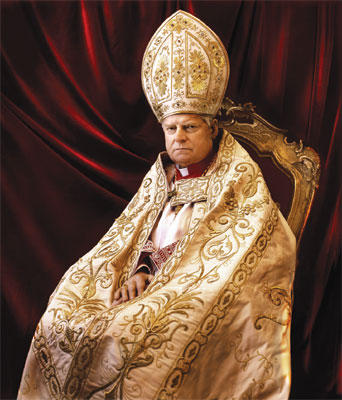
H.E. Cardinal Angelo Scola
Patriarch of Venice
ON THE “COMMON WORD” DOCUMENT
The document is certainly an encouraging sign. Above all what is of note is the number and quality of those who have signed the document. This is not only a media event, because consensus is for Islam a source of theology and law. The redactors of Oasis (www.oasiscenter.eu) have told me that even if those who have signed avoided a juridical formulation to the document, it is still true that no text produced by the most extremist salafi groups has ever been able to claim a consensus equal to that witnessed by the 138 signatures at the bottom of the open letter. The approach is realistic, ‘if Muslims and Christians are not at peace, the world cannot be at peace’, and at its core it simply aims to ‘say to Christians that we, as Muslims, are not against them and that Islam is not against them—so long as they do not wage war against Muslims on account of their Religion’. In that sense, the Muslim leaders willingly identify themselves with those ‘others’ of whom Jesus says: ‘who is not against us is with us’.
The document, in the prospective of that double love, of God and one’s neighbour, underscores a vein of the Muslim tradition which has been partially placed in the shade due to the growth of fundamentalism. The text affirms that man has ‘mind or the intelligence, which is made for comprehending the truth; the will which is made for freedom of choice, and sentiment
which is made for loving the good and the beautiful’. On the other hand, one notes between the lines a condemnation of terrorism: ‘to those who nevertheless relish conflict and destruction for their own sake or reckon that ultimately they stand to gain through them, we say […] to sincerely make every effort to make peace and come together in harmony’. The fact that the text is rooted in the Muslim tradition is very important and makes it more credible than other proclamations expressed in a more western language.
This document is only the prelude to a theological dialogue, which, in an atmosphere of greater reciprocal esteem, proposes to investigate the contents of the two pillars (love of the one God and love of neighbour) in the two religious traditions.
During two different meetings organized by Oasis, at Cairo and in the USA, I had the occasion to discuss publicly with three signers of the document: Seyyed Hossein Nasr, Ahmad Al-Tayyeb, Muzammil H. Siddiqui, and I was able to ascertain that this reciprocal esteem is real. The hope is that this document might be read and widely diffused in the Muslim world and in the West.
Certainly, the intervention of the Pope provoked a dynamic of great interest within Islam. As the same signers recognize, the interconnection between Christians and Muslims in the contemporary world is such to make it impossible not to take a position concerning the coexistence between different faiths.
The document indicates an important point of departure for an authentic dialogue. That always requires two conditions: the revelation of self in testimony and the search for a life that is good (vita bona). It seems to me that the signers of the letter are decidedly going in this direction from the moment that they invite Christians to a type of ‘spiritual emulation’, in a task to do the best: ‘Let us vie with each other only in righteousness and good works’.
[END]
